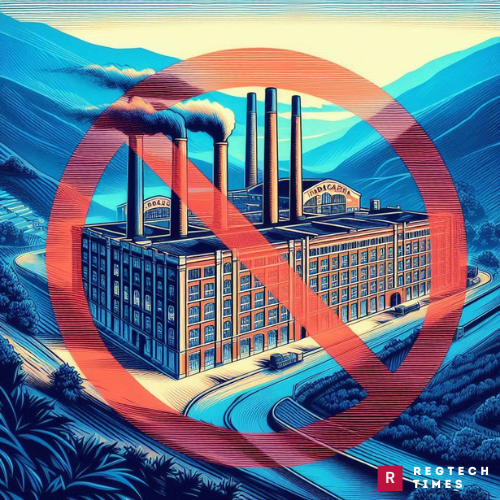In a decisive move to combat corruption, the Biden administration has imposed sanctions on the Paraguayan tobacco company Tabacalera del Este. The U.S. Treasury Department announced the sanctions on Tuesday, targeting the company for allegedly enriching Horacio Cartes, Paraguay’s controversial former president and a major political figure.
A History of Corruption Allegations
Horacio Cartes, who served as Paraguay’s president from 2013 to 2018, remains a significant force in Paraguayan politics. Allegations of corruption have plagued the Colorado Party member throughout his career. Last year, the U.S. Treasury Department sanctioned Cartes for his alleged involvement in a “concerted pattern of corruption.” These allegations included paying bribes to lawmakers to secure his political power and fostering connections with Hezbollah, a Lebanese militant group suspected of operating in the Tri-Border Area where Paraguay meets Argentina and Brazil.
The Treasury’s Office of Foreign Assets Control (OFAC) accused Cartes of using his business empire, which spans key sectors of the Paraguayan economy, to engage in illicit activities. These sanctions signify a major effort by the U.S. to tackle corruption and its global ramifications.
Sanctions on Paraguayan Tobacco Company
Tabacalera del Este, one of the largest cigarette producers in Paraguay, is now under scrutiny. The U.S. Treasury claims the company has funneled millions of dollars to Cartes through a sales agreement. Despite Cartes’ assertion that he no longer owns or manages the company, OFAC identified him as holding a 50% or greater interest, directly or indirectly.
This action highlights the U.S. commitment to holding Cartes accountable and promoting anti-corruption reforms in Paraguay. State Department spokesperson Matthew Miller stated that accountability for Cartes and the promotion of meaningful anti-corruption reform in Paraguay remain the dedication of the United States.
Political Repercussions
The sanctions arrive at a pivotal moment for Paraguay. Current president Santiago Peña, a political protégé of Cartes and a member of the Colorado Party, faces the challenge of navigating the political fallout from these sanctions. The party, which controls the majority of seats in both houses of Congress, has long been associated with Cartes’ political and economic influence.
Despite the gravity of these allegations, Cartes has not been charged with any crimes in Paraguay. He was elected last year as president of the Colorado Party, reaffirming his political clout. An investigation by Paraguay’s attorney general into the U.S. Treasury’s corruption allegations against Cartes have yielded no significant results, highlighting the entrenched issues within the country’s legal and political systems.
Economic Implications
Paraguay’s economic landscape is also affected by these developments. Moody’s ratings agency upgraded Paraguay to investment-grade status last month, highlighting the country’s robust economic growth. However, analysts and investors remain concerned about the pervasive organized crime that includes cigarette and drug smuggling. These illegal activities are believed to be fueled, in part, by companies like Tabacalera del Este.
Cartes’ business practices have long been under suspicion. Competitors have accused Tabacalera del Este of smuggling, citing the company’s massive cigarette sales volume. The latest sanctions add weight to these suspicions and cast a shadow over Paraguay’s economic achievements.
A Path Forward
The U.S. sanctions aim to disrupt the financial networks that facilitate corruption and organized crime. By targeting key players like Cartes and his associated businesses, the Biden administration hopes to foster greater transparency and accountability in Paraguay.
However, the effectiveness of these sanctions will depend on the Paraguayan government’s willingness to pursue meaningful reforms. With Cartes’ enduring influence and the Colorado Party’s dominance, achieving substantial change may prove challenging.
The U.S. sanctions on the Paraguayan tobacco company and Horacio Cartes reflect a broader strategy to address international corruption. While these measures send a strong message, the path to genuine reform in Paraguay will require sustained effort and cooperation from both domestic and international actors. The situation remains a critical test of Paraguay’s commitment to combating corruption and ensuring a fair and transparent political and economic environment.


